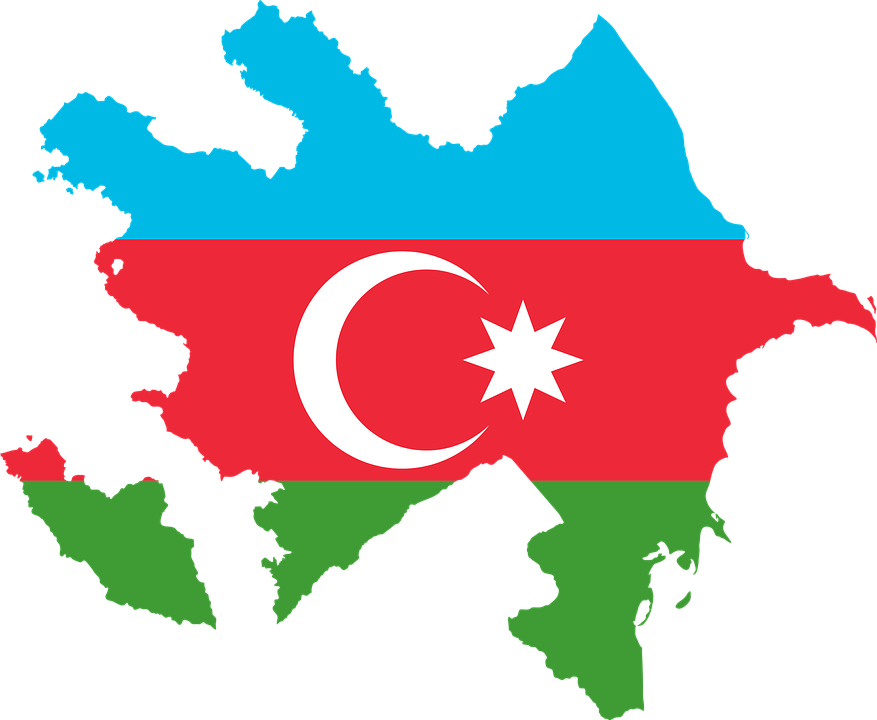A little-known country in Central Asia may be playing an outsized role in global security. Azerbaijan’s 10 million people live in the transcontinental region spanning Asia and Europe, where the area’s earliest inhabitants date back to the Stone Age. Throughout history the region has been the subject of contests for control over its territory and rich natural resources. During World War II, 80% of the Soviet Union’s oil for their war machine came from the area. Azerbaijan eventually emerged as an independent state in 1991 and now maintains relations with 158 countries and 38 international organizations. Today the Muslim nation is the subject of speculation among the great powers concerning its growing relationship with NATO and moves toward the West. Analysts point to Russian unease with Baku’s policy, despite its balancing policy.
When President Ilham Aliyev visited NATO headquarters in December 2021, he said “Azerbaijan has proven to be a reliable partner of NATO.” Rusif Huseynov and Samir Hajizad, of the Jamestown Foundation, note that NATO Secretary Jens Stoltenberg confirmed that Azerbaijan is “a valued partner” and was engaged in strong military cooperation with Turkey. It provides oil and gas supplies through multiple pipelines to several NATO member states and contributes to the NATO mission in Afghanistan. “Baku never sought NATO membership and instead opted for ‘equidistance’ from rivaling blocs,” notes Huseynov and Hajizad. They point out that the country continues to maintain a balancing policy designed to provide it room for maneuvering between Russia and the West and avoid conflict while accepting indirect NATO support.
Turkey announced plans in 2021 to establish a military base in Azerbaijan under the Shusha Declaration and strengthened their defense partnership despite protestations from Moscow. Baku’s close ties to Turkey helped it modernize its armed forces and move into better alignment with NATO member standards. Over the last year Azerbaijan has increased its cooperation with the West and worked more with NATO on senior level visits and other interactions.
A month ago, Azerbaijan’s foreign policy advisor, Hikmat Hajiyev, joined several meetings with NATO officials in Brussels. In response, NATO secretary general’s special representative for the Caucasus and Central Asia, Javier Colomina, has been to Azerbaijan four times since 2021 to discuss practical cooperation as well as joint defense planning and review processes, says Huseynov and Hajizad. NATO’s website now describes the country as a “key partner nation.” They point out that according to a senior NATO official, “Azerbaijan successfully uses NATO cooperation tools and is among the most active countries in these programs.”
Although the country wants to keep balanced relations, it is drafting away from Russia and expanding military cooperation with Turkey. The Azerbaijani publication Ordu recently noted that several Russian-made Sukhoi Su-25 fighter jets in the Azerbaijani Air Force have been modernized according to NATO standards by Turkey, rather than Russia. NATO indirectly is supporting mediation efforts with the Armenian-Azerbaijani peace negotiations and the Karabakh issue.
One Central Asian publication, Azertag, pointed out recently that the Azerbaijani side is troubled about possible military aid to Armenia, which is a member of the Russian-led CSTO, by individual NATO states, such as France. The security environment in Central Asia remains complex, especially given recent events in Russia. Azerbaijan and several other Central Asian states are re-evaluating their relationship with Moscow and making overtures to NATO and other western states. The situation warrants careful watching as events unfold in the coming months.
Daria Novak served in the U.S. State Dept.
